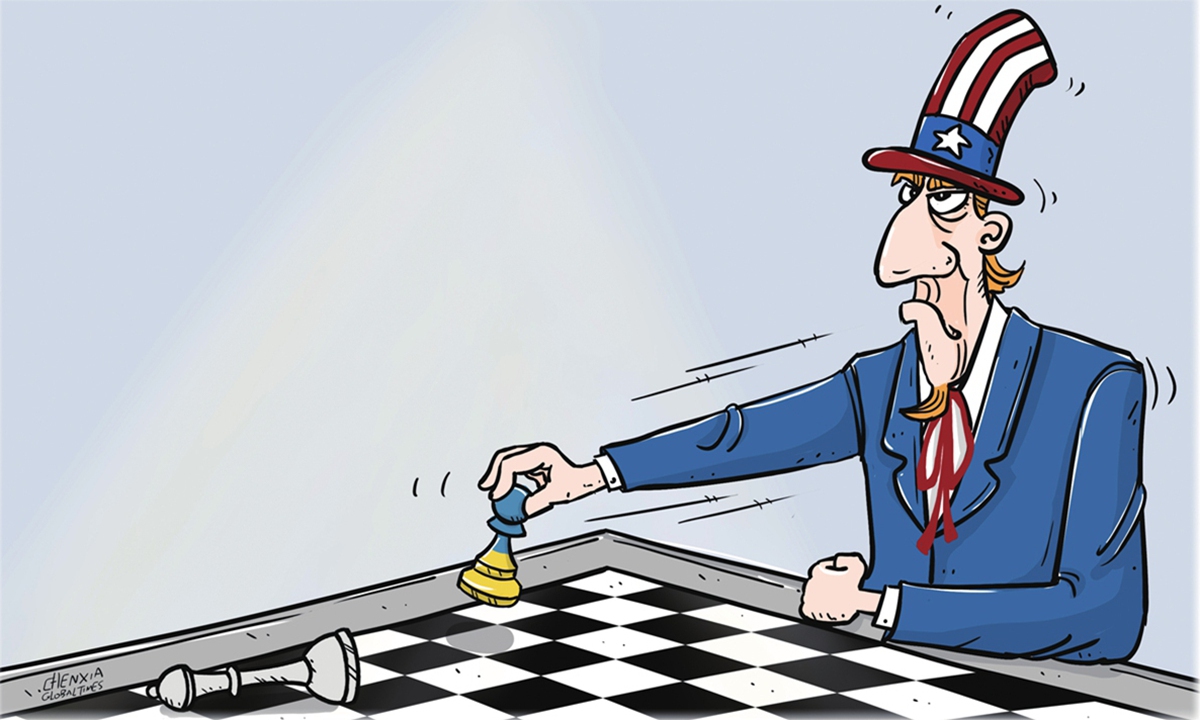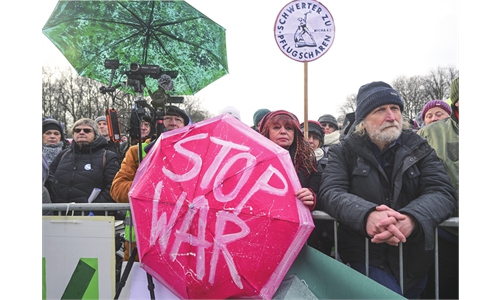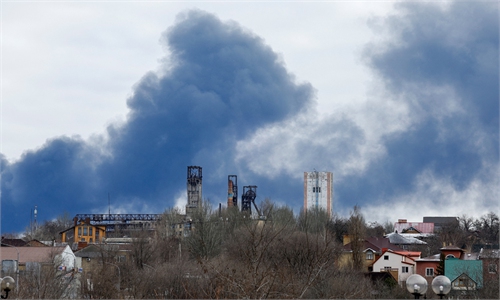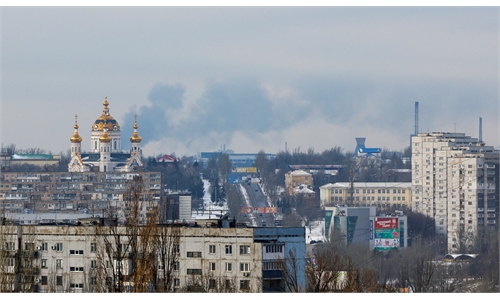
Illustration: Chen Xia/GT
The Russia-Ukraine conflict has been ongoing for two years. In an era of information explosion, it seems that any major event will gradually fade over time. At the recently concluded Munich Security Conference in Germany, the organizers deliberately emphasized many other geopolitical and regional security factors to downplay the core issue of the Russia-Ukraine conflict, which profoundly affects European security mechanisms. However, the Russia-Ukraine conflict continues to exert an undeniable fundamental influence on Europe and the overall global landscape.Over the past two years, countless research reports in the international strategic community have focused on the Russia-Ukraine conflict. Apart from ideological influences and political stance differences, there is a general consensus among all parties that the Russia-Ukraine conflict is a lose-lose situation for both Russia and Ukraine. It should be noted that unlike the mainstream political attitude in Europe two years ago, which vowed to "fight until the end," public opinion in Europe is gradually shifting toward a more pragmatic position. The reality is that the desired outcome for the US and Europe has not materialized, and Ukraine's military counteroffensive has been largely regarded as a failure.
In terms of economics and trade, the economic sanctions imposed by the US and Europe have failed to achieve the expected results. The Russia-Ukraine conflict has led to severe economic crises in major European countries. The entire European economy is sluggish, with Germany, as the locomotive of the EU, experiencing negative economic growth. Severe inflation caused by energy and food crises has exacerbated internal social conflicts, leading to repeated victories for right-wing political forces in domestic elections.
What is even more surprising is that the Russian economy, in a state of war, has not collapsed, despite the extremely harsh economic sanctions imposed by the US and Europe. Although the war has expelled Russia from the US-led global trade settlement system, it has indirectly strengthened the Russian government's control over the Russian financial sector. Russia's industrial production system has been effectively developed. Among European countries, Russia's economy has performed the best.
For the US, is the escalation of the Russia-Ukraine conflict an important geopolitical success? Apparently, the answer is yes. This military conflict has directly pulled the European Union back into the arms of the US, forced Russia into direct military conflict and, to some extent, slowed down the development of China-European relations. However, the "success" of the US comes with significant long-term strategic costs. An increasingly weakened Europe fundamentally contradicts the US' global strategic interests. The protracted Russia-Ukraine conflict is steadily eroding the US' international credibility and its influence within the Western alliance system. Moreover, the out-of-control Russia-Ukraine conflict further strengthens the bilateral relationship of "partnership without alliance" between China and Russia. Also, the increasingly close political and economic relations between Europe and Asia are not good news for the diplomatic strategic interests of the US.
Have transatlantic relations become closer due to the Russia-Ukraine conflict? Apparently, the US and its European allies have jointly launched multiple rounds of sanctions against Russia, consolidating the core position of the US in the construction of the European security mechanism. However, the world is no longer in an era where the US dominates. The strong development of emerging developing countries represented by China has greatly restricted the unbridled hegemony of the US dollar. In order to cope with domestic inflation and promote the reshoring of manufacturing, the Biden administration's Inflation Reduction Act directly harms the commercial interests of European allies. While European countries bear huge sacrifices on the front lines of the Russia-Ukraine conflict, US allies stab them in the back. This phenomenon once again illustrates that Western allies of the US and Europe are never a monolithic entity.
The Russia-Ukraine conflict is a touchstone for great power politics and the direction of the international landscape. In the Russia-Ukraine conflict, the vast majority of countries, especially those in Asia and Africa, have refused to take sides. The consciousness of major countries that control strategic resources such as food and energy is increasingly enhanced, and economic entities in the Asia-Pacific region refuse to accept the "political arrangements" of traditional Western powers. In the world under the Russia-Ukraine conflict, deeper structural changes are brewing. It must be acknowledged that the Russia-Ukraine conflict is a catalyst for the new international order.
The author is a scholar at Shanghai International Studies University and a specially invited expert at the China Forum of the Center for International Security and Strategy at Tsinghua University. opinion@globaltimes.com.cn



